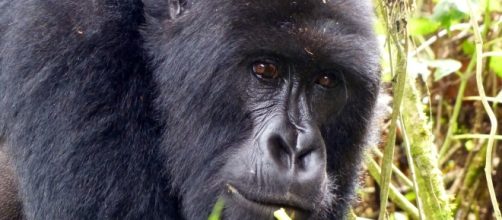Rwanda’s genocide in the 1990's generated grizzly footage of bloated bodies, resulted in widespread disinvestment and the loss of export markets.
Over the past 20 years, the country has come a long way from those dark days. Twenty years is not a long time in terms of the footprints humans can leave on their environment. Many of those footprints are devastating.
- Kenya
More than 80% of the Kenyan elephant population died in the 19 years between 1970 and 1989.
- Zimbabwe
Over the past 20 years, Zimbabwe has lost nearly 60% of their rhino population through poaching, and until the death of Cecil the Lion were leading exporters of lion hunting trophies.
- Mozambique
Mozambique did not need twenty years to lose half of their elephant population; they managed this in just five years, and stand accused of not doing much to prevent it.
Rwanda’s efforts to utilize natural resources in a sustainable manner, and thus create a green based economy is a prime example of what can be done when there is a willing administration in place.
The United Nations Environment Programme (UNEP) reports that Rwanda has developed a long-term strategy that” prioritizes the protection of the environment.” They have made remarkable progress but are working for a future where they will be able to “protect ecosystems for income generation and good governance.”
Tourism, which is the country’s fastest growing economic sector has resulted in a large increase in visitors which has generated over three million US$ annually.
The Gorilla project at the Volcanoes National Park generated the bulk of this money. Today Rwanda is one of the safe places in Africa where tourists can view these animals in the wild.
Other reserves that are growing in popularity with tourists include the Nyungwe Forest, which has populations of chimpanzees, and the Ruwenzori colobus, amongst other primates.
Lake Kivu is one of the enormous lakes found in Africa’s Rift Valley. It is one of the lakes known for the phenomenon of exploding waters. High methane content in similar rift valley lakes has caused deaths in other countries. Lake Kivu is now a natural source of energy production, which has changed the lives of millions and will aid economic growth.
Yet another successful project has been the restoration of the vast wetlands in the country. These marshlands comprise 7% of the total surface area of Rwanda. The Akanyaru complex at the Nyabarongo and Akagera National Parks are noted areas for the conservation of avifauna biodiversity.
The Association for the Conservation of Nature in Rwanda is combating illegal farming along the riverine areas of the Nyabarongo and has replaced these activities with high-quality products made from papyrus, which is increasing local community income.
The success of Rwanda thus far is proof that there are very large economic benefits in keeping ecosystems healthy and productive.
The recent UNDP figures regarding tourism show that while global tourism has increased by 4% over the past year, tourism to the African continent fell by 5%.
Africa cannot afford to continue to degrade their wildlife and natural resources. Tourists are very unlikely to visit Africa if there are no wild animals. There are only so many tribal dances that can generate income. In these times, where eco-tourism is becoming a big trend, Africa cannot afford to miss out on the huge economic benefits that tourism through the protection of natural resources can generate.
Rwanda is doing it, so there is no reason why the rest of Africa cannot make the same gains. There are challenges to overcome, but the basic ingredient is the need for serious commitment from African governments, farsighted leaders and urgency to address environmental issues seriously. This will help alleviate poverty, encourage economic growth and turn the devastation of the continent around.
Most wanted ivory poaching mastermind arrested in Tanzania.
Chinese President to ban ivory trade as elephants in Kruger Park targeted by poachers

